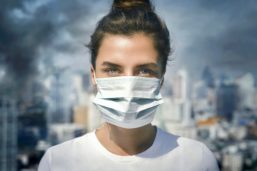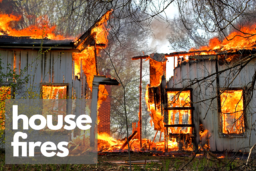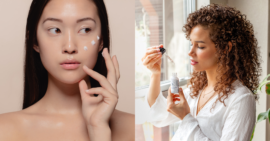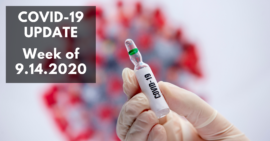
Coronavirus is just about the only thing on people’s minds now-a-days. However, there seems to be a lot of confusion when it comes to COVID-19. Some questions many of us have include what are common symptoms, where can we get tested, when can we get tested and what does Virginia’s “stay-at-home” order really mean? We’re here to answer those questions for you and shed some light during a confusing and stressful time for Americans.
Coronavirus Symptoms
Coronavirus symptoms can deviate rather significantly from person to person. People seem to be facing symptoms at varying ends of the spectrum. Some people remain entirely asymptomatic, while others end up hooked to a ventilator or worse…they die.
Here are common symptoms associated with coronavirus as well as the percentage of cases for whom these symptoms have manifested (according to the WHO):
- Fever — 88% of all cases
- Dry Cough — 68% of all cases
- Fatigue — 38% of all cases
- Phlegm — 33% of all cases
- Shortness of Breath — 19% of all cases
- Muscle or Joint Pain — 15% of all cases
- Sore Throat — 14% of all cases
- Headache — 14% of all cases
- Chills — 11% of all cases
- Vomiting — 5% of all cases
- Stuffed Nose — 5% of all cases
- Diarrhea — 4% of all cases
How to Prevent Getting Coronavirus
There is quite a bit of misinformation when it comes to preventing or treating the novel coronavirus. We’ve heard some people mention that inhaling steam “kills the virus” or that drinking lemon juice will scare COVID-19 away (we couldn’t make this stuff up if we tried). Misinformation is extremely dangerous and harmful, so we’re here to set the record straight.
According to the CDC, prevention is better than treatment, so…
- Stay at least 6 feet away from others.
- Wash your hands with soap and water for a minimum of 20 seconds.
- Avoid touching your eyes, nose and mouth until your hands have been thoroughly washed.
- Use hand sanitizer with at least 60% alcohol in it. Note: Soap and water are better alternatives than hand sanitizer.
Think You May Have COVID-19?
If you think you may have contracted COVID-19, the CDC recommends taking the following steps:
- Isolate yourself from other family members immediately.
- Stay home if you are sick, unless you are seeking medical attention.
- Cover your nose and mouth with a tissue when coughing or sneezing. If a tissue is not readily available, use the inside of your elbow to prevent spreading COVID-19.
- Wash your hands regularly and have a family member carefully disinfect common areas regularly.
- Wear a face mask. Those caring for you while you’re sick should also wear masks if possible.
Here are a list of medications that are recommended by the state of Virginia to treat various symptoms of COVID-19:
- Acetaminophen — for fever, headache and body aches
- Chloraseptic Spray or Cough Drops — for sore throat and dry cough
- Cough Suppressant — for dry cough
- Mucinex DM or Robitussin DM — for productive and dry cough
- Saline Nasal Spray or Sudafed — for stuffy or runny nose
What You Need to Get Tested
If you suspect that you may have contracted COVID-19, you should visit your healthcare provider or primary care physician. Your doctor will determine whether or not you need to be tested for coronavirus. You will need your healthcare provider’s recommendation as well as the Virginia Department of Health’s permission to get tested for COVID-19. If your symptoms are mild and you choose not to see your healthcare provider or not to get tested, stay home and avoid other people in your home. The recommendation is to quarantine yourself to a “sick room” so you do not spread coronavirus to other family members.
If you choose to home isolate, here are the recommended guidelines for when it is safe for you to leave your “sick room” and home:
- If you do not have a fever for at least 72 hours. Keep in mind, this means you must be fever-free for 3 days without the use of medication that reduces fevers.
- Any other symptoms that manifested have improved significantly.
- 7 days have passed since your first symptoms appeared.
Where to Get Tested in Northern Virginia
Testing is currently available via public health labs across the state of Virginia. There are certain criteria for who is eligible for priority testing.
Remember: You will need your healthcare provider’s recommendation as well as VDH’s permission to get tested for COVID-19.
“Stay-at-Home” Defined — What It Means
- Residents should only leave their house for food, supplies, medical care or self-isolated walks and exercise.
- Residents must maintain social distancing of at least 6 feet from others at all times.
- Residents can have food delivered or takeout from restaurants.
- Residents may leave their home if they need to care for other individuals and animals.
- Childcare is considered essential.
- Those that violate the ban of 10+ people gathering can be fined up to $2,500 or jailed for up to one year.
- Virginia’s Stay-at-Home order will remain effective from now until June 10th, 2020.
This is a very stressful time for humanity. Confusion about processes surrounding coronavirus and conflicting information has added to this stress for many people. We hope this article has clarified what you need to do in the event that you get sick over the coming weeks. If this article has been helpful, please share the information with others!
Call or Text (571) 229-1800 or Complete a Free Case Evaluation form



